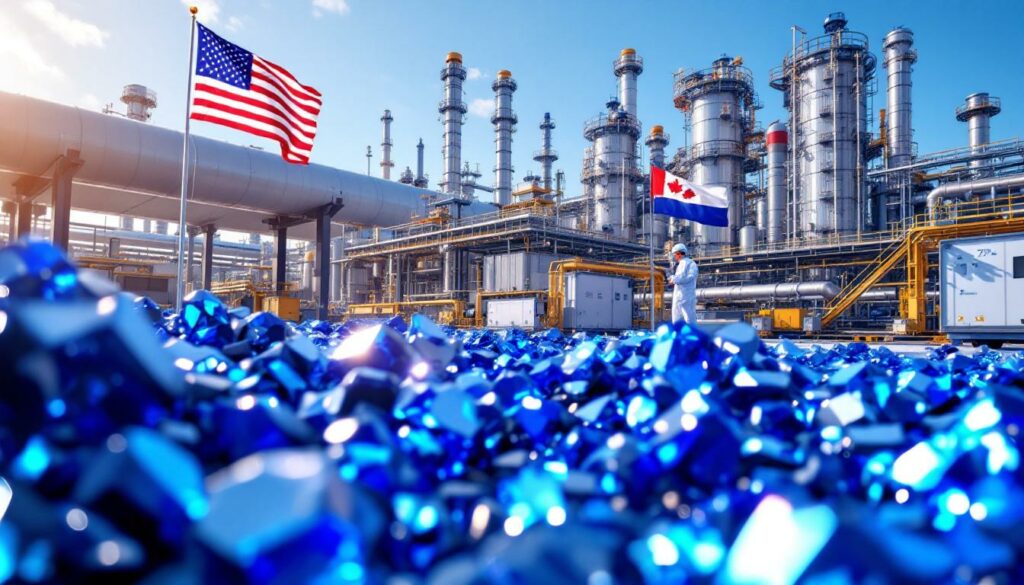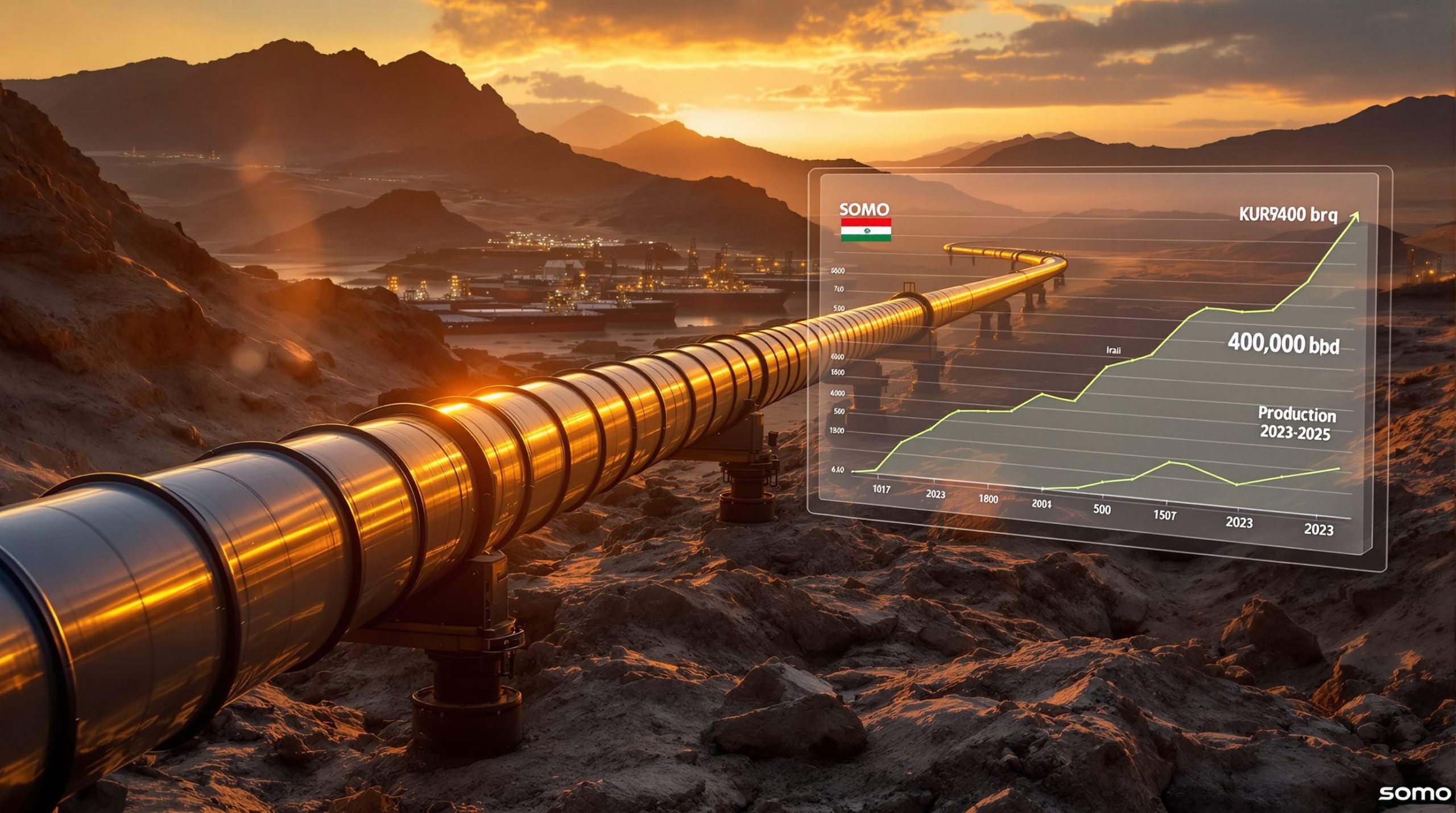North America's Cobalt Supply Chain Revolution: Breaking Import Dependence
North America stands at a critical juncture in its quest for mineral independence. With zero domestic cobalt refining capacity for battery-grade materials, the region has remained entirely dependent on overseas processing—primarily from China. This vulnerability affects everything from electric vehicle production to national defense capabilities.
The development of Electra Battery Metals' cobalt refinery in Ontario represents a watershed moment in addressing this strategic weakness. As the first facility of its kind in North America, it promises to redirect critical mineral flows away from Chinese refineries and establish a domestic processing foothold with far-reaching implications.
Why is North America Dependent on Cobalt Imports?
The Critical Mineral Security Challenge
North America faces a profound vulnerability in its critical mineral supply chains, particularly with cobalt—an essential component for electric vehicle batteries, advanced electronics, and defense applications. Despite being a continent rich in natural resources, the region currently possesses zero domestic cobalt refining capacity for battery-grade materials, forcing complete dependence on overseas processing.
This absence of processing infrastructure represents a significant strategic gap that has persisted for decades, leaving manufacturers reliant on complex international supply chains with limited visibility and control.
China's Dominance in the Global Cobalt Supply Chain
The cobalt refining landscape is dominated by a single nation: China. With approximately 72% of global cobalt refining capacity under its control, China occupies a position of extraordinary leverage in the battery metals investment supply chain. This concentration creates a strategic chokepoint for North American manufacturers seeking battery-grade cobalt sulfate.
"The degree of concentration in cobalt processing is unlike almost any other critical mineral," notes industry analysts. "While the raw material comes predominantly from the Democratic Republic of Congo, the refining capabilities exist almost exclusively in China—creating a double bottleneck."
This processing monopoly has developed over decades through strategic investments and government policy support, allowing China to establish dominance in a sector that Western nations largely overlooked until recently.
Economic and National Security Implications
The absence of domestic cobalt processing capabilities creates cascading vulnerabilities across multiple sectors:
- Supply chain disruptions during geopolitical tensions can halt manufacturing
- Limited negotiating power for North American manufacturers facing few supplier options
- Restricted ability to implement and enforce ethical sourcing standards
- Strategic disadvantage in critical defense applications requiring secure material sources
- Compliance challenges with domestic content requirements in clean energy legislation
These vulnerabilities have been recognized across multiple U.S. administrations, with both the Trump and Biden governments identifying critical mineral security as an urgent priority transcending partisan politics.
How is Electra's Canadian Refinery Changing the Landscape?
First North American Cobalt Refinery Takes Shape
In the industrial corridor of Ontario, Canada, Electra Battery Metals is constructing what will become North America's first commercial-scale cobalt refinery. This facility represents a cornerstone in rebuilding domestic supply chain resilience, establishing a critical processing hub that will transform imported cobalt hydroxide into battery-grade cobalt sulfate.
The refinery's 6,500-ton annual capacity will provide enough material to support battery production for approximately 1 million electric vehicles each year—a significant contribution to North America's emerging battery ecosystem.
"We're not just building a refinery; we're establishing the missing link in a secure North American battery supply chain," explains Trent Mell, Electra's President and CEO. "This facility allows cobalt mined in the DRC to be processed here rather than in China, keeping these critical materials within Western supply chains."
Strategic Government Support Demonstrates Critical Importance
The refinery has secured unprecedented cross-border government backing, highlighting its strategic significance:
| Funding Source | Amount | Significance |
|---|---|---|
| U.S. Department of Defense | $20 million USD | Authorized under the Defense Production Act |
| Canadian Government | $20 million CAD | Strategic minerals initiative support |
| Additional pending government funding | In progress | Final component of construction budget |
This bi-national support structure is particularly noteworthy, as the U.S. Department of Defense has taken the unusual step of funding a facility on Canadian soil—a reflection of the project's importance to continental security.
"The DoD is actually funding a Canadian asset, which is truly remarkable," notes Mell. "It speaks to the importance of what we're doing. From Trump to Biden, the journey has been the same. It's about on-shoring and decoupling from the dominance that China has over that supply chain. The Trump executive order on minerals has emphasized national security and defense, while the previous administration focused on carbon footprint and EV transition."
Innovative Business Model Prioritizes Stability
Unlike traditional mining operations that face substantial commodity price volatility, Electra has implemented a tolling business model designed to provide predictable cash flows:
- 5-year supply contract with LG Energy Solution provides volume certainty
- Fixed processing margins regardless of cobalt price fluctuations ensure stable returns
- Targeting $30 million USD in annual EBITDA at full capacity
- Utility-like revenue profile reduces investor exposure to commodity cycles
This approach transforms what would typically be a high-risk mining investment into something more akin to infrastructure—providing essential processing services with predictable returns independent of underlying commodity prices.
What Makes This Development Strategically Significant?
Redirecting Material Flow from China to North America
The refinery's most significant impact may be its role in redirecting global cobalt flows. Through partnerships with major mining companies Glencore and ERG, Electra will process cobalt hydroxide sourced from the Democratic Republic of Congo that would otherwise be sent to Chinese refineries.
This material redirection creates a viable alternative to Chinese processing for the first time, establishing a precedent that could be replicated across other critical minerals.
"We're intercepting material that would otherwise go to China," explains industry analysts. "This isn't about increasing overall cobalt production but rather about where that material gets processed and who controls the value-added steps."
Addressing Bipartisan Policy Priorities
The project's alignment with core policy objectives across political administrations helps explain its strong government support and reduces political risk. The Trump administration has continued and expanded efforts to secure critical mineral supply chains, with particular emphasis on defense applications and national security considerations.
"The journey is the same whether under Biden or Trump. It's about on-shoring and decoupling from the dominance that China has over the supply chain. One administration focused on carbon footprint and EV transition, the other on national security and defense."
This strategic continuity across administrations provides a stable policy environment for long-term investments in domestic processing capacity. The Trump administration's use of the Defense Production Act to fund the Electra facility demonstrates continued commitment to reducing foreign dependencies in critical defense areas.
Meeting Growing Defense and Civilian Demand
Beyond electric vehicles, cobalt demand is surging across multiple applications, creating a diverse customer base for refined materials:
- Defense applications projected to grow at 12x the rate of civilian uses
- Battery-powered military equipment including drones, radios, and night vision systems
- Grid-scale energy storage systems requiring long-duration battery solutions
- Consumer electronics with increasing battery density requirements
- Aerospace applications demanding high-performance power solutions
This diversified demand profile reduces market risks associated with any single application, creating multiple potential revenue streams for domestic processing capacity.
How Will the Refinery Operate and Expand?
Hydrometallurgical Processing Capabilities
The facility employs proven hydrometallurgical refining technology to process cobalt hydroxide into battery-grade cobalt sulfate through a multi-stage process:
- Leaching of raw materials in an acid solution
- Separation of cobalt from other elements through selective precipitation
- Purification to meet stringent battery specifications
- Crystallization of cobalt sulfate for final product delivery
This flexible processing platform accommodates various input materials while maintaining consistent output quality—a critical factor for battery manufacturers requiring materials that meet precise specifications.
Battery Recycling Creates Circular Economy Opportunity
Electra is developing complementary battery recycling capabilities through a strategic joint venture with Aki, an indigenous economic development group. This initiative creates a circular economy approach that reduces dependence on imported materials:
- Battery collection and shredding through the Aki partnership
- Processing of "black mass" (crushed battery materials) at the refinery
- Recovery of cobalt, nickel, lithium, and graphite from recycled materials
- Initial focus on manufacturing scrap with approximately 10% rejection rates
- Long-term strategy to process end-of-life electric vehicle batteries
"Battery recycling represents the ultimate form of supply security," explains industry experts. "As the EV fleet ages, we'll have a growing 'urban mine' of materials that can be recovered domestically, reducing import dependence over time."
Future Expansion Potential
The refinery platform creates multiple growth pathways beyond initial cobalt processing:
- Nickel sulfate production leveraging similar processing technologies
- Integration with Idaho cobalt mining assets for vertically integrated supply
- Scaling recycling operations as EV batteries reach end-of-life in volume
- Processing additional battery materials as North American battery production expands
This modular growth strategy allows for incremental expansion as market conditions warrant, reducing capital risk while maintaining optionality for future development.
What are the Financial Aspects of the Project?
Capital Requirements and Funding Strategy
The total construction budget for the refinery is approximately $80 million USD—a relatively modest capital requirement compared to mining operations or battery manufacturing facilities:
| Funding Source | Amount | Status |
|---|---|---|
| U.S. Department of Defense | $20 million USD | Secured |
| Canadian Government | $20 million CAD | Secured |
| Strategic investor | $20 million | Term sheet in place |
| Additional funding | ~$20 million | To be raised |
This capital-efficient approach leverages substantial government support, reducing dilution for shareholders while ensuring sufficient funding for completion and commissioning.
Projected Financial Performance
At full capacity of 6,500 tons annually, the refinery targets predictable financial outcomes:
- $30 million USD in annual EBITDA
- Stable margins through tolling arrangements independent of cobalt prices
- Utility-like cash flow profile attractive to infrastructure investors
- Reduced exposure to commodity price volatility compared to mining
"The tolling model transforms what would traditionally be a volatile mining business into something more akin to infrastructure," notes financial analysts. "It's a fundamentally different risk profile that should attract investors seeking stable returns in the critical minerals space."
How Does This Project Address Supply Chain Vulnerabilities?
Creating Essential Processing Infrastructure
The refinery addresses a critical gap in North America's battery supply chain by establishing domestic processing capability for a material that currently has zero regional production. This infrastructure development is essential for reducing import dependence and building supply chain resilience against disruptions.
The Trump administration has emphasized critical mineral security as a cornerstone of national defense strategy, with the Defense Production Act funding for Electra's facility demonstrating practical implementation of this priority.
Diversifying Global Cobalt Processing
By creating an alternative processing destination for DRC-sourced cobalt hydroxide, the project helps diversify global cobalt processing beyond China's current dominance. This diversification benefits both North American manufacturers and global mining companies seeking balanced customer portfolios.
"For mining companies in the DRC, having processing options outside China creates negotiating leverage and reduces single-customer risk," explains supply chain experts. "This benefits the entire ecosystem by creating more balanced market dynamics."
Supporting Domestic Content Requirements
The refinery will produce materials that can help manufacturers meet increasingly stringent domestic content requirements in legislation like the Inflation Reduction Act, potentially unlocking tax credits and other incentives for downstream customers.
This alignment with policy incentives creates a natural customer base for the refinery's output, as battery and vehicle manufacturers seek qualifying materials to access government incentives.
What is the Investment Thesis for This Development?
Strategic Positioning in Critical Supply Gap
Electra's first-mover advantage in addressing North America's cobalt refining gap creates a protected market position with significant barriers to entry. New competitors would face lengthy permitting processes, capital requirements, and technical challenges that create a multi-year lead time advantage for established facilities.
This scarcity value in essential infrastructure creates potential for premium valuations once operational stability is demonstrated.
Stable Cash Flow Model Reduces Traditional Mining Risks
The tolling business model provides utility-like cash flows with reduced exposure to commodity price volatility, differentiating the investment from typical mining stocks that rise and fall with underlying material prices.
"This isn't a traditional mining play where you're betting on cobalt prices," notes investment analysts. "It's a processing margin business where revenue stability comes from the service provided, not the underlying commodity value."
Government Validation Reduces Execution Risk
Substantial government funding from both the U.S. and Canada validates the strategic importance of the project while reducing financial execution risk. The involvement of the Department of Defense under the Trump administration's critical minerals strategy provides both capital and credibility.
This government support also potentially unlocks additional funding sources and customer relationships that might otherwise be unavailable to early-stage projects.
Multiple Growth Pathways
The platform approach creates multiple expansion opportunities through:
- Battery recycling integration creating circular material flows
- Potential nickel sulfate production leveraging similar technology
- Integration with mining assets for vertical supply chain control
- Additional battery materials processing as the sector evolves
This optionality provides investors with multiple potential value creation scenarios beyond the base case cobalt refining business.
FAQ: North American Cobalt Supply Chain
Why hasn't North America developed cobalt refining capacity before now?
Historical factors including China's strategic investments in processing capacity, lower environmental standards overseas, and fragmented North American policy approaches created a situation where offshore processing became the default. Recent national security concerns under the Trump administration and supply chain disruptions have changed this calculus, making domestic processing economically and strategically viable for the first time in decades.
The convergence of national security priorities, electrification trends, and supply chain vulnerabilities exposed during recent global disruptions has created unprecedented policy support for onshoring critical mineral processing.
How does the tolling model protect against cobalt price volatility?
The tolling arrangement provides Electra with a fixed processing margin regardless of cobalt prices, similar to how oil refineries earn consistent margins on processing rather than taking direct commodity price exposure. This creates predictable cash flows while allowing customers to manage their own commodity risk strategies.
Under this model, if cobalt prices rise or fall dramatically, Electra's margins remain stable—focusing instead on operational efficiency and throughput optimization rather than market timing.
What happens if electric vehicle adoption slows down?
While electric vehicle growth drives significant cobalt demand, the refinery's products also serve defense applications, energy storage systems, and consumer electronics—providing diversified end markets. Additionally, the tolling model with fixed margins provides financial stability even during market fluctuations.
The Trump administration's emphasis on defense applications creates stable demand regardless of EV adoption rates, providing a base load for refinery operations independent of consumer vehicle preferences.
How does this development affect global cobalt mining?
The refinery doesn't change global cobalt mining output but redirects processing flows away from China toward North America. This creates more balanced customer options for mining companies while potentially improving supply chain transparency and ethical sourcing verification.
For mining operations in the DRC, having multiple processing destinations reduces market concentration risk and potentially improves bargaining position when negotiating supply agreements. This is particularly important considering the potential impact of the DRC cobalt export ban on global markets and the ongoing development of alternative sources like the Halls Creek cobalt expansion.
Further Reading on Canadian Refinery and North America's Cobalt Import Dependence
Readers interested in learning more about North American critical mineral supply chains can explore additional resources on the strategic importance of domestic processing capabilities, government initiatives supporting critical mineral independence, and the evolving North American mining trends.
The development of the Canadian cobalt refinery represents just one component of broader efforts to rebuild North America's processing capabilities across multiple critical minerals, reducing import dependence while creating domestic jobs and securing strategic supply chains.
Want to Spot the Next Major Mineral Discovery Before the Market?
Discovery Alert's proprietary Discovery IQ model instantly notifies investors of significant ASX mineral discoveries like those transforming the North American cobalt supply chain, turning complex data into actionable insights for both short-term trading and long-term investment opportunities. Visit our dedicated discoveries page to see how historic mineral discoveries have generated substantial returns.




